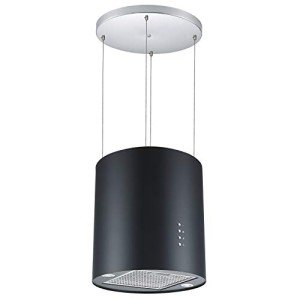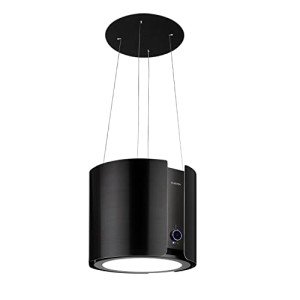
19
MayWhat The 10 Most Worst Island Extractors FAILURES Of All Time Could Have Been Prevented
Island Extractors: A Comprehensive Guide to a Unique Industry
In the world of extraction industries, couple of sectors record the creativity as vividly as that of Island Cooking Hood extractors. These specialized entities concentrate on the extraction of valuable resources, both sustainable and non-renewable, from kitchen island extractor fan communities. This article looks into the multifaceted world of island cooker hood extractors, discussing their operations, environmental impacts, and the future of this specific niche industry.
Comprehending Island Extraction
Island extractors are companies or people that take part in the extraction of natural resources located on islands. This extraction can include a range of materials, such as minerals, nonrenewable fuel sources, and even marine resources. Given the distinct ecosystems found on islands, the extraction procedure can provide both opportunities and fundamental difficulties.
Classifications of Island Extraction
Island extraction can generally be categorized into several categories:
| Category | Description | Examples |
|---|---|---|
| Mineral Extraction | The removal of minerals from the earth | Kaolin, Bauxite, Iron Ore |
| Fossil Fuel Extraction | Extraction of fuels formed from raw material over millennia | Oil, Natural Gas |
| Marine Resource Extraction | Harvesting resources from oceanic environments | Fish, island Cooking Hood Seaweed, Shellfish |
| Eco-friendly Resource Extraction | Extraction of sustainable resources | Lumber, Freshwater |
The Process of Island Extraction
The extraction process itself can differ substantially based upon the resource in concern. The procedures for extracting oil diametrically vary from those for gathering seafood.

Actions in the Extraction Process
- Exploration: This stage involves geological surveys and island cooking Hood initial studies to assess the capacity of the resource.
- Laws Compliance: Compliance with local and worldwide environmental laws is vital to make sure sustainable practices.
- Extraction: This includes drilling for oil or mining for minerals, and can cause considerable disturbance to regional ecosystems if not handled effectively.
- Transport: Extracted resources generally require transportation back to the mainland or other markets, frequently including making use of ships and barges.
- Post-Extraction Restoration: Efforts to bring back the environment post-extraction are essential to alleviate lasting effects.
Ecological Impact of Island Extraction
Offered the delicate nature of island communities, the environmental impact of extraction activities can be considerable.
Secret Environmental Concerns
- Environment Destruction: The physical elimination of landscapes can ravage local plants and animals.
- Pollution: Resource extraction can present pollutants, leading to ocean acidification, water contamination, and air quality destruction.
- Coastal Erosion: Activities can exacerbate seaside disintegration, altering the natural landscape and affecting local communities.
- Biodiversity Loss: Extractors often disrupt local communities, positioning native types at risk.
Mitigation Measures
To combat these impacts, island kitchen extractor hoods extractors are significantly embracing sustainable practices that include:
- Implementing stricter ecological guidelines
- Utilizing innovation for much safer extraction procedures
- Conducting comprehensive environmental effect assessments (EIA)
- Engaging with local neighborhoods during planning and operation phases
The Future of Island Extraction
As global need continues to rise for natural resources, the future of island extractors appears promising yet complicated. Numerous elements will shape the trajectory of this market in coming years:
- Technological Advancements: Innovations in extraction technology may lead to more efficient and less environmentally disruptive methods.
- Regulative Changes: As climate modification ends up being an ever-pressing problem, stricter regulations may redefine extraction practices, focusing on sustainability.
- Pressure from Environmental Groups: Increased advocacy for the protection of biodiversity and communities can affect operational procedures.
- Shift towards Renewable Resources: A growing focus on renewable resource solutions may alter the focus from non-renewable extraction to sustainable practices.
Often Asked Questions
What resources are commonly drawn out from islands?
Typical resources extracted from islands consist of minerals, fossil fuels, lumber, freshwater, and marine resources such as fish and seaweed.

How do island extractors guarantee sustainability?
Island extractors can make sure sustainability by sticking to ecological policies, incorporating innovation that decreases effect, and restoring environments post-extraction.
What are the significant difficulties dealt with by island extractors?
Obstacles consist of compliance with policies, managing ecological effects, logistical problems related to transport, and engaging with regional communities affected by extraction.
Are there any significant island extraction jobs?
Yes, numerous projects exist worldwide, consisting of mineral mining in the Caribbean, oil drilling in the North Sea, and sustainable fish farming efforts in Southeast Asia.
The world of island extractors is a complex interaction between financial opportunity and environmental duty. As this market evolves, the challenge will be to balance resource extraction with the need to secure fragile island communities. By accepting sustainable practices and engaging with local communities, island extractors can forge a course that appreciates both nature and market, ensuring that these special environments are preserved for generations to come.


Reviews